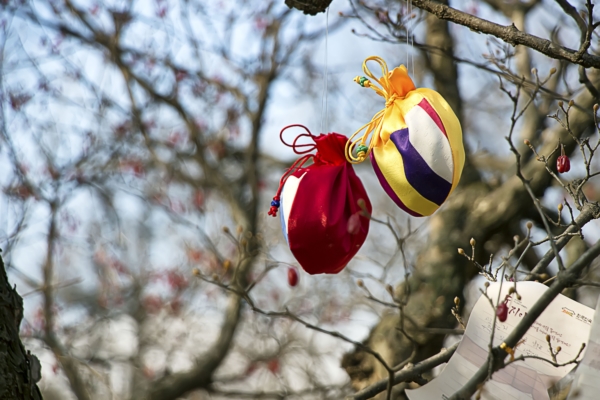Chuseok, originally known as ‘hangawi’ is one of the most important holidays in Korea. It’s a harvest festival where family members come together to share food, stories, and their heritage. Han refers to something big in native Korean, while gawi refers to a day in the middle of fall. Combined, the word hangawi is interpreted as a big day in the middle of fall and this year, the holiday starts on September 23, 2018. It lasts three days – including the day before and after Chuseok. Chuseok dates back nearly 2,000 years ago during the Silla dynasty. It serves to thank one’s ancestors by participating in traditional activities. If your business travels in late September take you to Korea, knowledge of the following Chuseok customs will prepare you to engage in intelligent conversation about this traditional harvest festival. Charye: Ancestor Memorial Services On the day of Chuseok, family members gather at their homes to hold a memorial service called Chayre to thank their ancestors for the rich harvest in the following year. The service is also held during Seollal (Lunar New Year’s Day) to wrap up the year by showing gratitude to their ancestors. During Chuseok, the major representative foods consist of freshly harvested rice, makgeolli (rice-based alcohol) and songpyeon (half-moon shaped rice cakes). During Seollal, families make tteokguk (rice cake soup) for their main dish. However, not all Korean families practice Charye as some have adapted to modernized customs in the era of globalization. Chuseokbim: Chuseok Dress Chuseokbim or Chuseok dress refers to wearing traditional Korean clothing called hanbok. Hanbok is also worn on Seollal (Lunar New Year’s Day) and may be purchased easily in stores in Seoul and other cities. There are also options to rent hanbok for a day as it can be an investment to buy quality Korean traditional clothing. While there are Korean families who wear hanbok during Chuseok, some people choose to wear western clothing instead. Ssireum: Traditional Korean Wrestling Watching traditional Korean wrestling is another way to celebrate Chuseok with family members and friends. The rules of the game are simple: first person to knock their opponent off their feet using their strength and skills wins. In the past, there was a series of competitions and the winner was considered the village’s strongest man. He would receive various prizes such as cotton, rice or even a calf for his powerful strength. Nowadays, ssireum competitions are held nationwide; winners often receive a monetary reward. Ganggangsullae: Korean Circle Dance Ganggangsullae refers to a dance that originated from the Joseon Dynasty, an era between 1392 and 1910. It is said that women of the village dressed in military uniforms and circled the mountains to give the impression that the Korean army was greater in number than it actually was. This unique scare tactic won the Korean army many victories. Today, it’s used as a form of entertainment for Koreans and international visitors alike. Chuseok is a celebration embedded deep in Korea’s culture, history, and people. If you’re visiting or residing in Korea during the fall, learn about and participate in Chuseok celebrations to appreciate the full experience. Sharon Schweitzer and Sunny Kim co-wrote this post. Sharon Schweitzer, J.D., is a cross-cultural trainer, modern manners expert, and the founder of Access to Culture. In addition to her accreditation in intercultural management from the HOFSTEDE centre, she serves as a Chinese Ceremonial Dining Etiquette Specialist in the documentary series Confucius was a Foodie, on Nat Geo People. She is the resident etiquette expert on two popular lifestyle shows: ABC Tampa Bay’s Morning Blend and CBS Austin’s We Are Austin. She is regularly quoted by BBC Capital, Investor’s Business Daily, Fortune, and the National Business Journals. Her Amazon #1 Best Selling book in International Business, Access to Asia: Your Multicultural Business Guide, now in its third printing, was named to Kirkus Reviews’ Best Books of 2015. She’s a winner of the British Airways International Trade Award at the 2016 Greater Austin Business Awards and the 2017 New York City Big Book Award for Multicultural Nonfiction. Sunny Kim was a Fall 2017 Cross-Cultural Communication intern with Access to Culture. She is a journalism student at the University of Texas at Austin with a minor in Korean language and certificate in business. She is also the founder and president of UT Asian American Journalists Association. Her main focus is storytelling people’s diverse experiences relating to race and culture. Connect with her on Linkedin. Photo by pxhere 

I’m so thankful for all the scrumptious Korean nutrients!
The Korean meals is absolutely delicious
and I’m grateful for it!